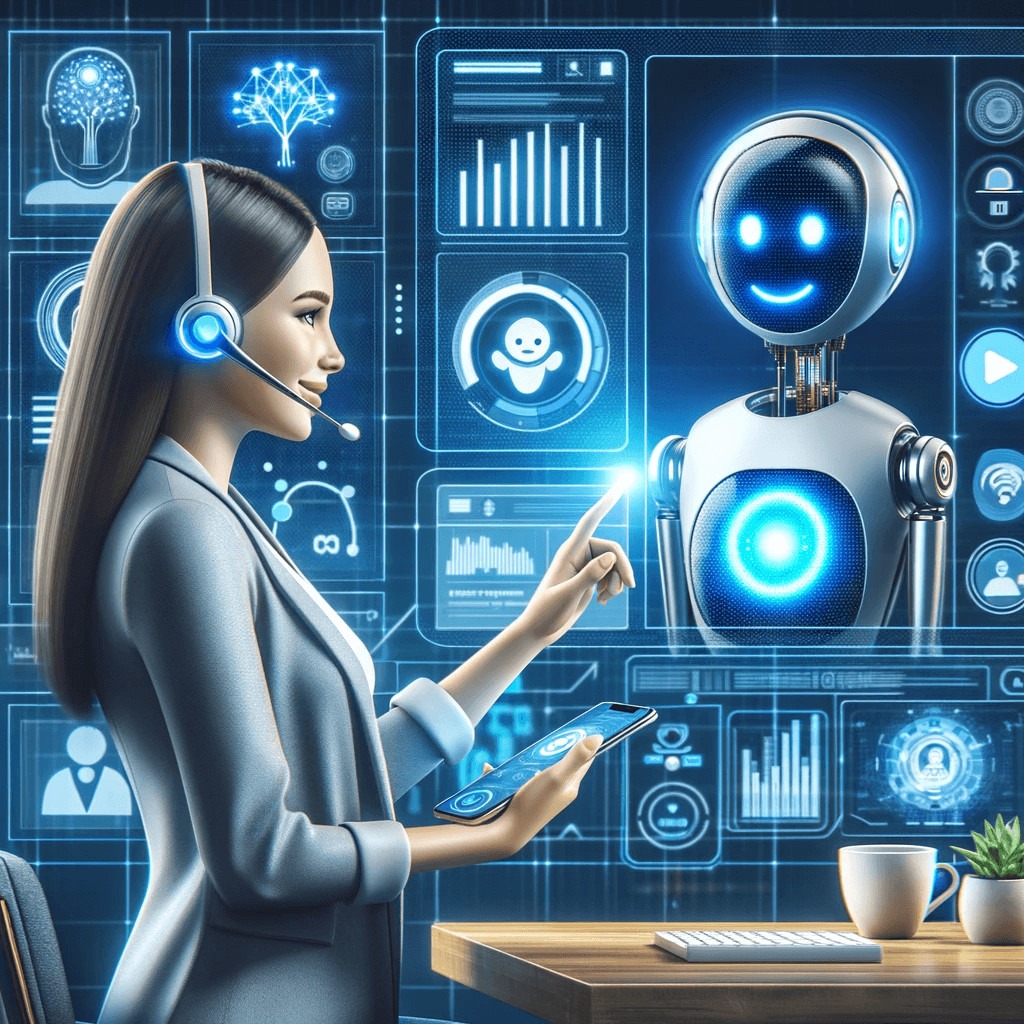In an era where customer expectations are at an all-time high, AI virtual assistants are emerging as a game-changer in the realm of customer service. These intelligent systems, powered by artificial intelligence, are not only redefining efficiency and personalization but are also paving the way for a future where customer interactions are more interactive, responsive, and satisfying. Let’s explore how AI virtual assistants are revolutionizing customer service and what this means for businesses and consumers alike.
The Current Landscape
Today, AI virtual assistants are increasingly common, thanks to advancements in machine learning, natural language processing, and voice recognition technologies. From chatbots on websites to voice assistants in smartphones and smart speakers, these AI-driven solutions are becoming integral to our daily lives. They assist with a wide range of tasks, including answering FAQs, booking appointments, and providing personalized product recommendations, delivering a level of convenience and efficiency previously unattainable.
Benefits of AI Virtual Assistants in Customer Service
24/7 Availability: Unlike human agents, AI virtual assistants can offer round-the-clock service, ensuring customers receive help whenever they need it. Scalability: AI can handle a vast number of inquiries simultaneously, making it easier for businesses to scale their customer service operations without a proportional increase in cost. Personalization: Through data analysis, AI assistants can offer tailored recommendations and solutions, enhancing the customer experience. Efficiency and Cost-Effectiveness: By automating routine inquiries, AI allows human agents to focus on more complex issues, improving overall service quality while reducing operational costs.
Challenges and Ethical Considerations
While the benefits are clear, integrating AI into customer service also presents challenges. Privacy concerns, data security, and the need for continuous improvement in AI’s understanding of human nuances are significant considerations. Moreover, striking the right balance between automated and human touch in customer service is crucial to ensure customers feel valued and understood.
The Future of AI Virtual Assistants in Customer Service
As we look to the future, AI virtual assistants are set to become even more sophisticated. With advancements in AI and machine learning algorithms, these assistants will offer even more personalized and context-aware interactions. The integration of AI with other technologies like augmented reality (AR) and the Internet of Things (IoT) will further enhance the customer service experience, offering new and innovative ways for customers to interact with businesses.
Conclusion
AI virtual assistants represent a significant leap forward in the evolution of customer service. By offering personalized, efficient, and scalable solutions, they not only meet but exceed today’s customer expectations. As technology continues to advance, the role of AI in customer service will only grow, making it an exciting time for businesses and consumers alike. The future of customer service is here, and it’s powered by artificial intelligence.






